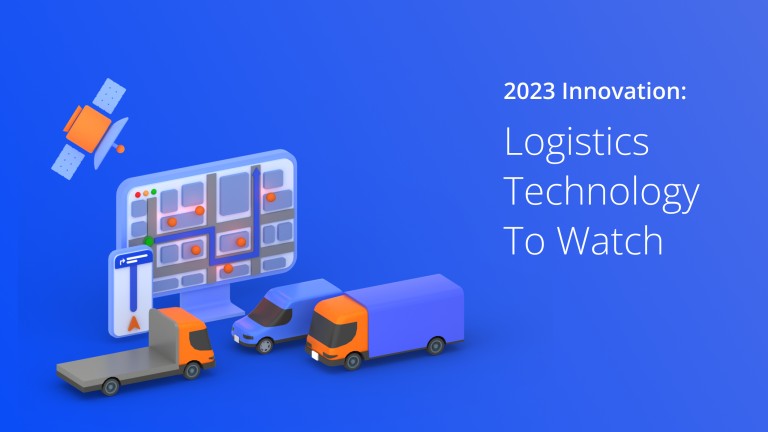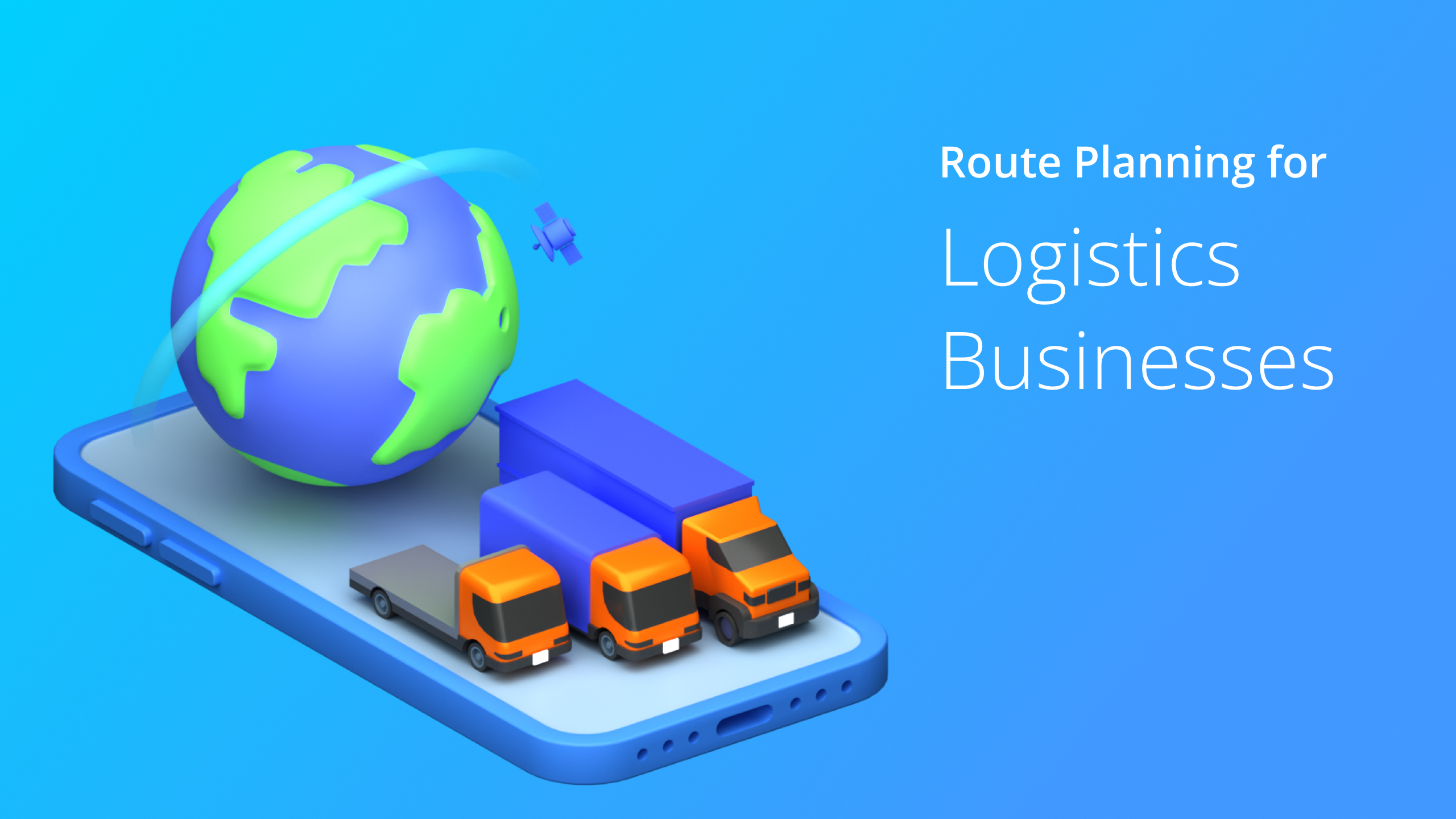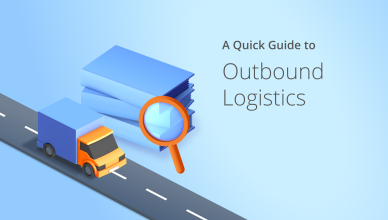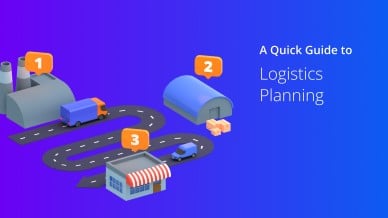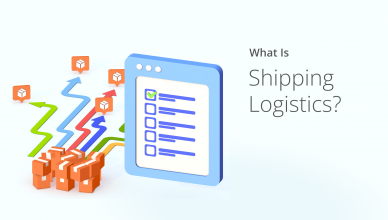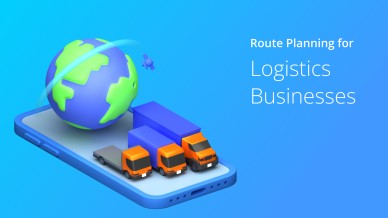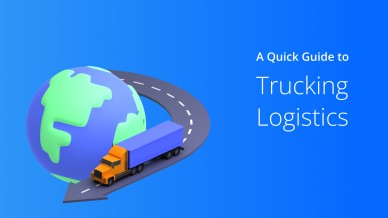The rapid growth rate of digital transformation in the past years forced varying industries to adapt quickly, especially the supply chain and logistics industry.
Since the pandemic hit, e-commerce has become more in demand, increasing the competition in logistics companies.
Businesses like trucking companies must keep up as new technologies change traditional and manual processes.
To step up your game, read on as we share the logistics technology trends that benefit businesses.
Table of Contents
Top 10 Logistics Technologies to Watch
1. 3D printing
3D printing is an additive manufacturing process that utilizes digital design to produce tangible materials [1].
This technology may affect the supply chain regionally and locally since it can reduce the need to transport goods and spare parts long-distance.
Although it can affect some industries, this technology may benefit other businesses as they can fulfill on-demand orders in the warehouse by setting up 3D printing.
2. Internet of Things (IoT)
As the demand for consumption increases, businesses and warehouses struggle to manage their operations.
With IoT, companies can increase efficiency and secure their operations. It allows logistics companies to access data through their devices.
IoT can also track the product’s storage, shipment status, and shelf life. Furthermore, warehouses can use smart sensors for operation-related alerts.
As a result, the supply chain can maintain and monitor independently.
3. Automation
One of the best technologies that benefit logistics firms is automation. It involves warehouse or distribution automated process to physical automation.
For instance, warehouses can use pick-to-light systems, where operators scan barcodes with LED lights. Then, it will display the destination and number of items to pick.
Some warehouses also optimize route automation for autonomous vehicles. Thus, considering the increasing cost and shortage of parts and labor, it’s beneficial.
4. Transportation Management Systems (TMS)
The TMS systems benefit trucking companies the most, allowing them to develop centralized data through mobile apps and other software.
This transportation trend can assist a trucking business in optimizing routes and reducing shipment costs while meeting consumer demands.
Moreover, there are plenty of logistics technologies a trucking company can utilize, like GPS, making it easier to track drivers and delivery operations in real-time.
Through this, businesses can monitor and improve their services.
5. Big Data Analytics
Since supply chains generate large amounts of data, they can be utilized to make improvements and changes to the structure of varying systems.
Analyzing this data is ideal for gaining insights to optimize usage and processes.
In addition, it can assist in demand forecasting, lowering cost risks, and developing innovative ways to generate revenue on the entire supply chain.
It can also provide predictive data to adjust and avoid increasing costs, attracting industry players’ interest.
6. Artificial & Augmented Intelligence
Another trend that can assist businesses is augmented and artificial intelligence. With the continuous usage of digital services, utilizing artificial intelligence is a must to thrive.
Machine learning and artificial intelligence are vital in developing robotic systems, improving business operations, and improving customer experience.
It also aids in labor shortages in the industry, as operations can be automated instead of performing everything manually.
In short, this logistics technology can significantly improve business operations.
7. Cloud Logistics
Cloud logistics is another trend to implement in your business, featuring flexible and real-time access to vital data and operation processes.
It involves a cloud-based computing system that provides efficient and updated information, from producing the product to packaging and shipping.
Additionally, companies utilizing cloud systems can ensure protection from fraud.
Thus, businesses having problems with security and information should use cloud systems to save time.
8. Robotics And Automation
Warehouses across the world mainly process everything manually, so automation has the potential to take over logistics in the future.
Aside from that, robotics has improved operations by collaborating with humans, aiming to reduce monotonous work and aiding during labor shortages.
Once robotics has been refined, self-driving trucks will roll out in the years to come.
Robotics can also assist in picking, sorting, and packing, which may be assistive or automated.
9. Blockchain Technology
Blockchain technology is another trend you should keep track of as it’s expected to get rid of a decentralized ledger.
It can remove the complexity while ensuring security through transaction links.
Additionally, blockchain can reduce paperwork and delays and prevent fraud. However, before that becomes possible, blockchain must solve cryptocurrency-related issues.
Blockchain will speed up payment and increase transparency if they surpass these hurdles.
10. Virtual Reality & Digital Twins
Today, it has become common as many companies perform everything virtually, from testing and monitoring to managing operations and machinery.
Moreover, virtual reality allows immersive learning and training by recreating a realistic digital environment. Thus, testing proposed plans and layouts is easier.
Does Keeping Up with Transportation & Logistics Trends Matter?
Yes, keeping up with logistics technology trends matters. It helps satisfy the value chain and to remain competitive.
As supply chain management technologies evolve, such as machine learning, it has proved their growing importance in analyzing and collecting essential information.
This includes info on transportation and fleet management.
These innovative trends also cater to the ever-growing tech-savvy consumers, who prefer fast shipping, flexibility, real-time updates, and good customer service.
FAQs
What’s the role of technology in logistics?
Its primary role in logistics is to increase efficiency and customer satisfaction through automation. It allows real-time visibility to track operation progress and performance.
In addition, it enables route optimization to develop cost-efficient routes, lowering fuel and operational costs. In short, it reduces delay and meets demand and surging orders.
What are the benefits of technology in logistics?
It offers many benefits, from reducing human error and increasing efficiency to improving communication by connecting businesses to customers.
It can also reduce costs of operation and risks with predictive information. Most of all, it eliminates manual paperwork as all the data can be collected in a centralized system.
For More Tips Checkout Route4Me Route Planner.
Final Say
Logistics technologies play a vital role throughout the supply chain process. The advanced strategies it offers will also benefit different industries in the long run.
From improving operations to increase revenue, these logistics technology trends should be considered to stay on top of your industry.
Thus, thinking wisely and going digital is essential to stay on track with your business goals.
